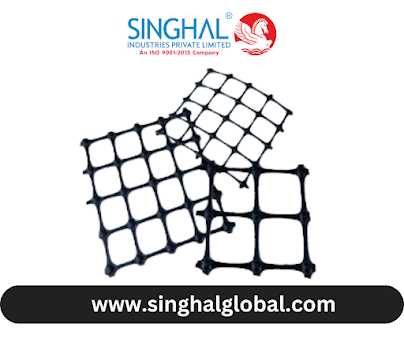Understanding PP Sheets: Everything You Need to Know
In today's industrial and commercial landscapes, P P Sheets Manufacturer play a crucial role across various applications due to their versatility, durability, and cost-effectiveness. Whether you're in packaging, construction, automotive, or electronics, understanding PP sheets can greatly benefit your operations. This comprehensive guide covers everything from what PP sheets are to their uses, benefits, and frequently asked questions (FAQs).
What are PP Sheets?
Polypropylene (PP) sheets are plastic materials made from polypropylene resin. They are known for their excellent chemical resistance, lightweight nature, and ability to withstand a wide range of temperatures. PP sheets are manufactured through extrusion or flat die extrusion methods, resulting in sheets of varying thicknesses and dimensions. These sheets can be customized with additives to enhance specific properties such as UV resistance, flame retardancy, or anti-static properties.
Applications of PP Sheets
1. Packaging: Polypropylene Sheet Manufacturers are widely used in packaging applications due to their durability and ability to be thermoformed into various shapes. They are used for packaging food items, pharmaceutical products, and consumer goods. PP sheets are also favored for their moisture resistance and ability to maintain product integrity during transport and storage.
2. Construction: In the construction industry, PP sheets find applications in roofing, wall cladding, and insulation. Their lightweight nature makes them easy to handle and install, while their resistance to moisture and chemicals ensures longevity and durability in various weather conditions.
3. Automotive: PP sheets are extensively used in automotive interiors and exteriors. They are molded into dashboards, door panels, and bumpers due to their impact resistance and aesthetic appeal. PP sheets contribute to reducing vehicle weight, improving fuel efficiency, and enhancing overall vehicle safety.
4. Electronics: In electronics, PP sheets are utilized for manufacturing components such as battery casings, electrical insulation, and housings for electronic devices. Their electrical insulation properties and ability to withstand high temperatures make them ideal for protecting sensitive electronic components.
Benefits of PP Sheets
Durability: Polypropylene Sheets 4x8 are highly durable and resistant to wear and tear, making them suitable for long-term use in various applications.
Chemical Resistance: They exhibit excellent resistance to chemicals, acids, and bases, ensuring stability in harsh environments.
Lightweight: PP sheets are lightweight, which reduces transportation costs and makes them easier to handle during installation.
Recyclability: They are recyclable, contributing to sustainability efforts and reducing environmental impact.
Cost-Effectiveness: PP sheets offer a cost-effective solution compared to many other materials, making them economically viable for large-scale production.
Conclusion
PP sheets have revolutionized multiple industries with their versatility, durability, and cost-effectiveness. Whether you're looking to enhance packaging solutions, improve construction materials, or innovate in automotive and electronics, PP sheets offer a reliable and efficient material choice. Understanding their properties and applications can help businesses and consumers alike make informed decisions about integrating PP sheets into their projects. As technology advances and demand grows, PP sheets are likely to continue playing a pivotal role in shaping the future of materials engineering and manufacturing.
Frequently Asked Questions (FAQs) About PP Sheets
Q1: What are the different types of PP sheets available?
A1: PP sheets are available in various types based on their additives and manufacturing processes. Types include flame-retardant PP sheets, UV-resistant PP sheets, conductive PP sheets, and anti-static PP sheets, among others.
Q2: How are PP sheets manufactured?
A2: PP sheets are typically manufactured through extrusion processes where polypropylene resin is melted and extruded through a die to form a continuous sheet. The sheets are then cooled and cut to the desired dimensions.
Q3: What are the primary benefits of using PP sheets in packaging?
A3: PP sheets offer excellent moisture resistance, chemical resistance, and durability, making them ideal for packaging perishable goods, pharmaceuticals, and consumer products. They also help in maintaining product integrity and shelf life.
Q4: Are PP sheets environmentally friendly?
A4: PP sheets are recyclable, which contributes to their environmental friendliness. They can be melted and reprocessed into new products, reducing waste and promoting sustainability.


Comments
Post a Comment